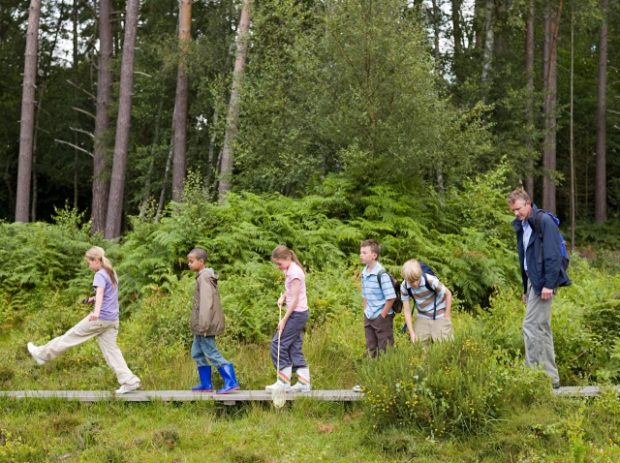Forest schools: What if we brought learning outside?

In Europe, ‘forest schools’ are part of the German and Danish education systems. Image: Getty Images/Image Source via AFP Relaxnews.
Bush schools, or the new green classrooms, are set to become more and more common by 2030. Seen as a solution to health constraints, they could also be excellent for developing children’s social and cognitive skills.
Learning outdoors is expected to become more widespread in the next decade. From kindergarten to university, classes outdoors have emerged as a way to overcome the health restrictions put in place to combat COVID-19. But over time, this might become both a habit and a necessity.
Elizabeth “Dori” Tunstall, dean of design at the Ontario University of Art and Design (OCAD), foresees the return of the bush school by 2030 or so.
“Based on the wise practices from the 1918 Spanish flu and the 2020 COVID-19 pandemic, bush schools that deliver learning outdoors in nature will become more popular,” she said to Fast Company.
This increased popularity is because transmission of COVID-19 is lower in the open air and with enough space, it might even be possible to remove one’s mask.
It is also because nature is at the center of the environmental issues of the coming years, and it is by spending time in nature that we will really realize its value.
The importance of nature in education
Numerous studies in the last few years have underlined the benefits of nature for humans. In 2019, a study published by Mathew White, a lecturer in environmental psychology, found that being outdoors for at least two hours a week promoted good health and psychological wellbeing.
And while the outdoors enhances human health, it can also help children develop motor and intellectual skills.
In the book “L’enfant dans la nature” by Mathieu Chereau and Moina Fauchier-Delavigne, published by Fayard, the authors emphasized the importance of green playgrounds for meeting children’s physical, relational and cognitive needs.
They also describe “an undeniable appetite for joy.” Jumping, climbing, running, hiding behind trees — all these fun activities are essential for children to lower their risk of obesity, high blood pressure or behavioral problems.
Outdoor schooling across the world
The bush school concept has been widespread in the United States since the 1920s. These “forest schools,” as they are known, put nature back at the center of educational practices.
In Europe, “forest schools” are developing mainly in Germany and the Nordic countries such as Denmark, where they are an integral part of the curriculum for children under seven years old. According to the website Les Decliques, there are about thirty forest schools in France based on the Montessori school model. CC
RELATED STORIES:
How a regular dose of nature could boost mental health during the pandemic
Immerse yourself in the relaxing sounds of a forest at the other end of the world